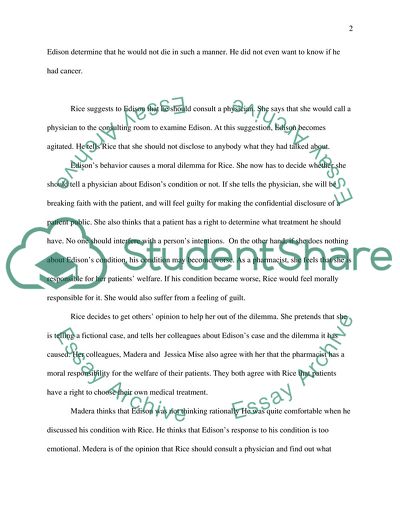Cite this document
(Patients Confidential Disclosures through tthe Lenses of Kantian Philo Essay, n.d.)
Patients Confidential Disclosures through tthe Lenses of Kantian Philo Essay. https://studentshare.org/ethics/1717758-a-patients-confidential-disclosures
Patients Confidential Disclosures through tthe Lenses of Kantian Philo Essay. https://studentshare.org/ethics/1717758-a-patients-confidential-disclosures
(Patients Confidential Disclosures through Tthe Lenses of Kantian Philo Essay)
Patients Confidential Disclosures through Tthe Lenses of Kantian Philo Essay. https://studentshare.org/ethics/1717758-a-patients-confidential-disclosures.
Patients Confidential Disclosures through Tthe Lenses of Kantian Philo Essay. https://studentshare.org/ethics/1717758-a-patients-confidential-disclosures.
“Patients Confidential Disclosures through Tthe Lenses of Kantian Philo Essay”. https://studentshare.org/ethics/1717758-a-patients-confidential-disclosures.


